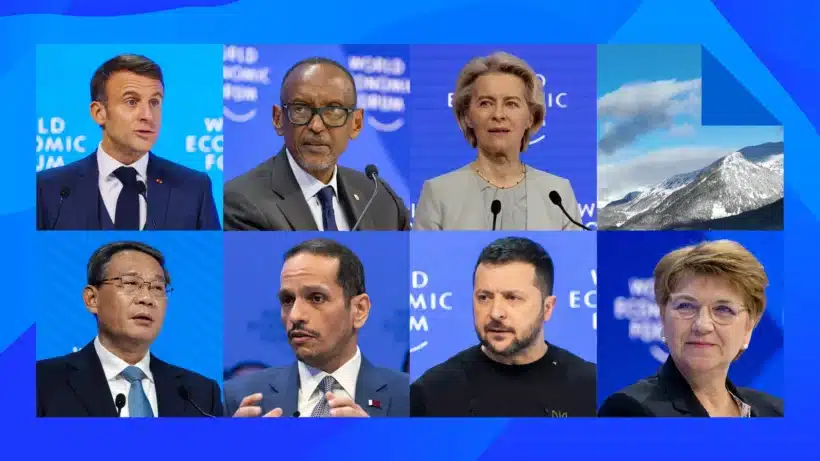
The 54th Annual Meeting of the World Economic Forum convened in Davos, Switzerland, against a tense geo-political backdrop.
Conflicts in multiple regions continue to threaten global peace and stability while political fragmentation is increasingly taking a toll on other issue areas ranging from the climate crisis to the development of advanced technologies. In Davos, top public and private sector voices as well as leading civil society experts met to discuss how to effectively deal with security crises, such as the current situation in the Middle East, while at the same time mitigating the structural forces of fragmentation.
The meeting was also attended by over 60 heads of states and government and nearly 300 ministers and other political leaders, several of which delivered public addresses.
Here’s some of what they had to say.
Li Qiang, Premier of the People’s Republic of China
Li Qiang, Premier of the People’s Republic of China, delivered the first special address of the Annual Meeting 2024.
Li called for the rebuilding of trust between countries and touted China’s economy, stressing its integral position in the global economy. “The Chinese economy is making steady progress, and will continue to provide a strong impetus for the world economy,” Li stated.
Ursula von der Leyen, President of the European Commission
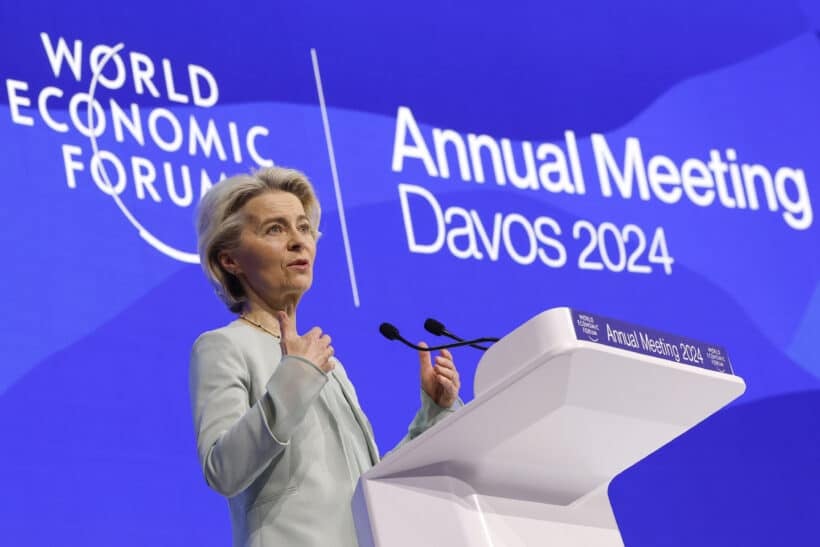
Ursula von der Leyen, President of the European Commission, urged countries around the world to collaborate and rebuild trust amidst an array of global challenges ranging from the climate crisis to polarization within societies.
Von der Leyen also discussed efforts to advance Europe’s energy independence. “Europe has made real progress in improving the resilience of its energy systems,” after Russia’s invasion of Ukraine, she said. For von der Leyen’s full remarks, see here.
Volodymyr Zelenskyy, President of Ukraine
Ukrainian President Volodymyr Zelenskyy decried the ongoing Russian aggression against Ukraine and called on countries around the world to support Ukraine’s war efforts. ” “We need you in Ukraine to build, to reconstruct and to restore our lives,” he said.
Zelenskyy also praised the Ukrainian military’s extraordinary war efforts and called for international support to ensure a just and final peace.
Sheikh Mohammed bin Abdulrahman Al-Thani, Prime Minister and Minister of Foreign Affairs of Qatar
Qatari Prime Minister Sheikh Mohammed bin Abdulrahman Al-Thani spoke with World Economic Forum President Børge Brende on 16 January.
Sheikh Mohammed discussed the current conflict in the Middle East and the precarious state of shipping security in the Red Sea. “Protecting the freedom of navigation is a global issue,” he said.
Pham Minh Chinh, Prime Minister of Viet Nam
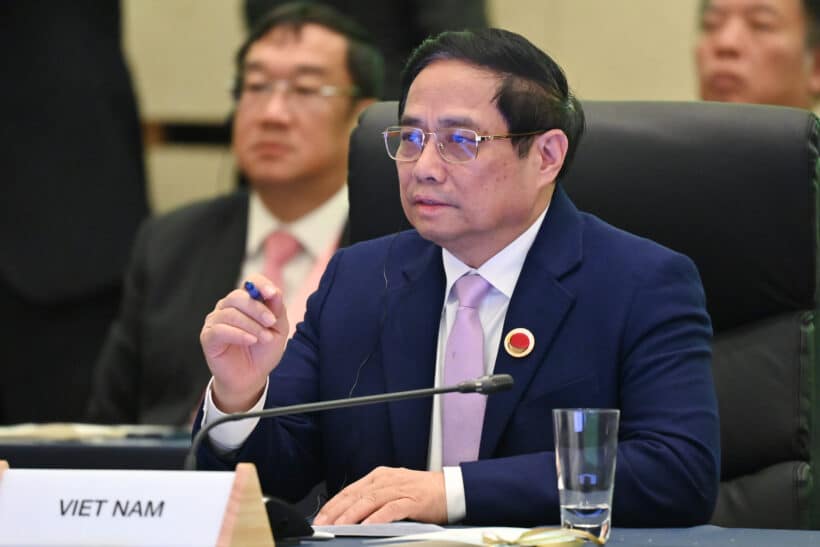
Pham Minh Chinh, Prime Minister of Viet Nam, sat down for a conversation with Thomas Friedman, a foreign affairs columnist at The New York Times. Among several topics, Chinh shared Viet Nam’s plans for development, including a 2045 goal to become a developed nation with high income.
“For the industries to grow,” Chinh said, “we need to develop a modern and industrialized nation. And we need to attach importance to all industries.”
Jake Sullivan, National Security Advisor of the United States
US National Security Advisor Jake Sullivan delivered a special address outlining the United States’ position on the most pressing global issues ranging from shipping disruptions in the Red Sea to US competition with China. The world, he said, is in an era of “strategic competition in an age of interdependence.”
Sullivan noted that “major powers are vastly more interdependent than at any time during the Cold War,” adding that powerful countries are “also in stiff competition about the type of world we want to build. This age is one of disruptive change.”
Bisher Hani Al Khasawneh, Prime Minister of Jordan
Bisher Hani Al Khasawneh, Prime Minister of the Hashemite Kingdom of Jordan, spoke in coversation with Daniel Kurtz-Phelan, the editor-in-chief of Foreign Affairs. Al Khasawneh spoke about the ongoing conflict in the Middle East and the potential for an escalation of violence and displacement of people.
“The longer [this conflict] lasts, the more prospects we have that endanger regional peace, security and stability,” he said.
Antony Blinken, Secretary of State of the United States
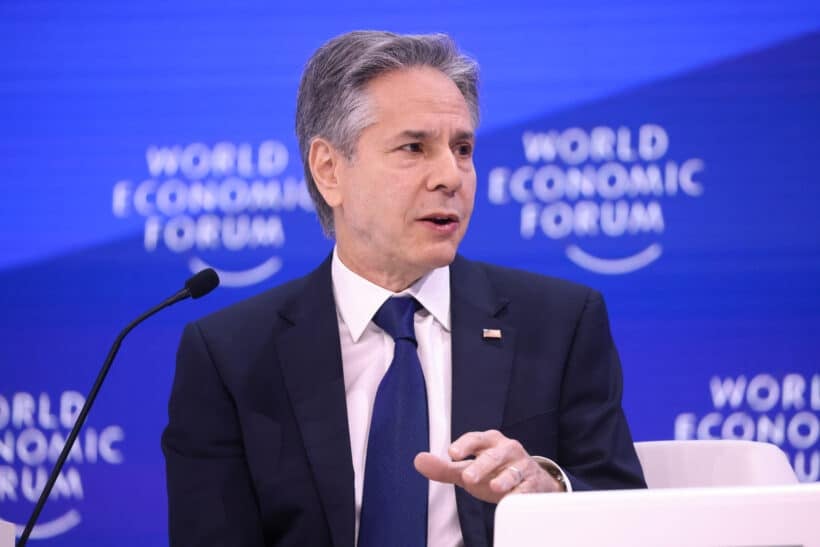
US Secretary of State Anthony Blinken sat down with Thomas Friedman of The New York Times for wide-ranging conversation on today’s most challenging foreign policy issues. The topics of discussion included the war in Ukraine, the escalation of conflict in the Middle East and shipping disruptions in the Red Sea, to name a few.
“I can’t think of a time when there’s been both a greater multiplicity and greater complexity of the challenges that we’re dealing with,” Blinken said.
António Guterres, Secretary-General of the United Nations
In a special address, António Guterres, Secretary-General of the United Nations, called on countries to put aside differences and come together to deal with shared challenges. In particular, Guterres called for action to combat the climate crisis and advance the clean energy transition.
Guterres added that while rebuilding trust will not happen overnight, it is “both essential, and possible.” For the full remarks, see here.
Hossein Amir-Abdollahian, Minister of Foreign Affairs of Iran
Hossein Amir-Abdollahian, Minister of Foreign Affairs of the Islamic Republic of Iran, sat down with CNN host Fareed Zakaria to discuss the geopolitics of the Middle East and Iran’s position on an array of global issues.
Mohammad Mustafa, Chairman of the Palestine Investment Fund
Mohammad Mustafa, Chairman of the Palestine Investment Fund, spoke with World Economic Forum President Børge Brende about the conflict in Israel and Gaza. Mustafa demanded more humanitarian aid be allowed into the territory and called for a political solution to the conflict.
Javier Milei, President of Argentina
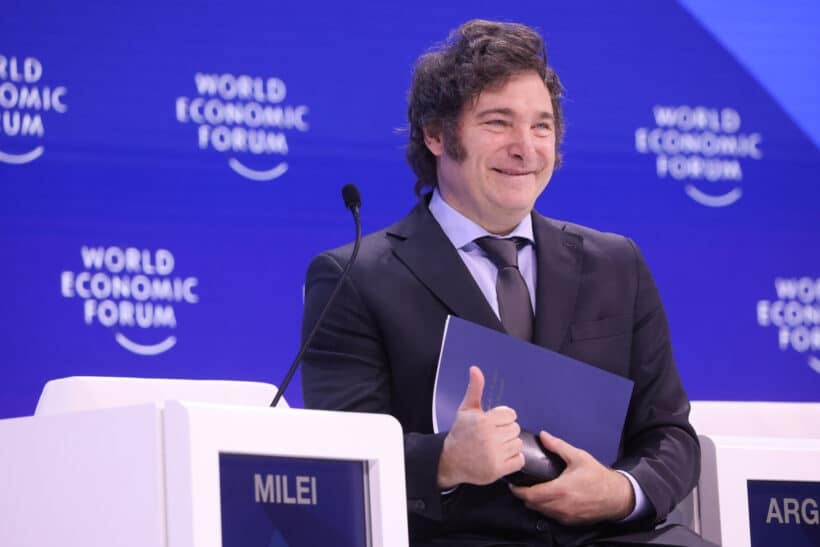
Javier Milei, President of Argentina, shared his views on the state of the global economy and the mechanisms for economic growth. Milei also discussed political and economic philosophy as well as his vision for economic stability in Argentina. For Milei’s full remarks, see here.
Pedro Sánchez, Prime Minister of Spain
Spanish Prime Minister Pedro Sánchez touched on themes including repercussions of a failure to achieve the Sustainable Development Goals by 2030, and the importance of maintaining a rules-based international order.
Sánchez also spoke about the ongoing global conflicts and the need to carefully govern the use of AI. After his prepared remarks, he sat down for a discussion with Børge Brende about topics including EU expansion (including, potentially, Ukraine). “Our common approach with regard to the conflict in Ukraine,” he said, “is the most important strength that we as Europe have.” For Sánchez’s full remarks, see here.
Emmanuel Macron, President of France
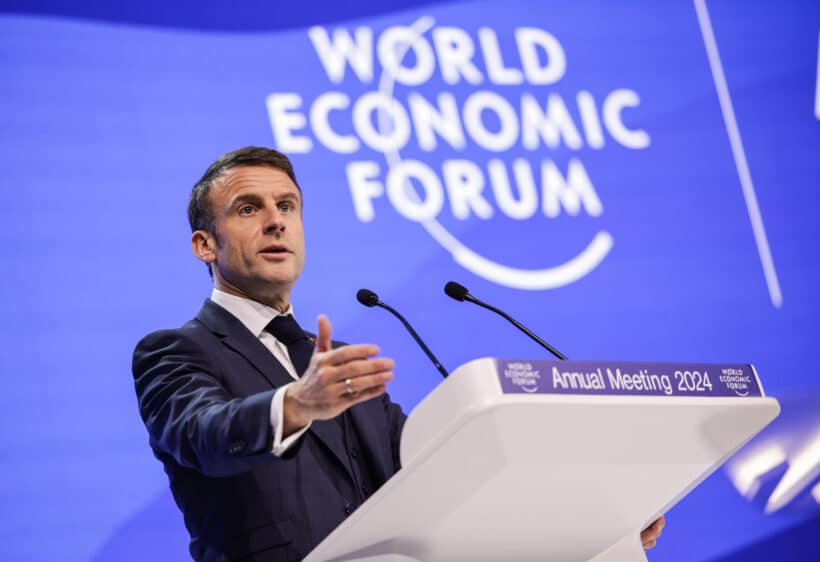
French President Emmanuel Macron discussed economic growth in France and advances in European integration. Moreover, Macron detailed the technological prowess of France and discussed efforts to foster innovation around advanced technologies like AI.
Macron also outlined France’s position on the ongoing conflicts in Ukraine and in the Middle East.
Isaac Herzog, President of Israel
Israeli President Isaac Herzog spoke with World Economic Forum President Børge Brende about the ongoing conflict in Gaza and tensions in the region. Herzog decried Hamas’ terrorist attacks on 7 October 2023 and demanded the release of Israeli hostages currently being held by Hamas. Moreover, he called on the international community to support Israel in the conflict.
Mohammed Shyaa Al Sudani, Prime Minister of Iraq
Iraqi Prime Minister Shyaa Al Sudani spoke with John Harris, the Founding Editor of Politico, about the political and security situation in Iraq as well as the country’s transition away from an oil-based economy. He also reflected on how Iraq must delicately balance its relationships with other regional and global powers.
Moreover, Al Sudani spoke about the ongoing conflict in Israel and Gaza, and the rising tensions across the Middle East.
Kyriakos Mitsotakis, Prime Minister of Greece
Greek Prime Minister Kyriakos Mitsotakis spoke with Ravi Agrawal, Editor-in-Chief of Foreign Policy, about today’s most pressing foreign policy issues ranging from the conflict in the Middle East to the potential for NATO enlargement.
Kyriakos also reflected on Greek and European economic stability as well as the issue of migration across Mediterranean countries.

